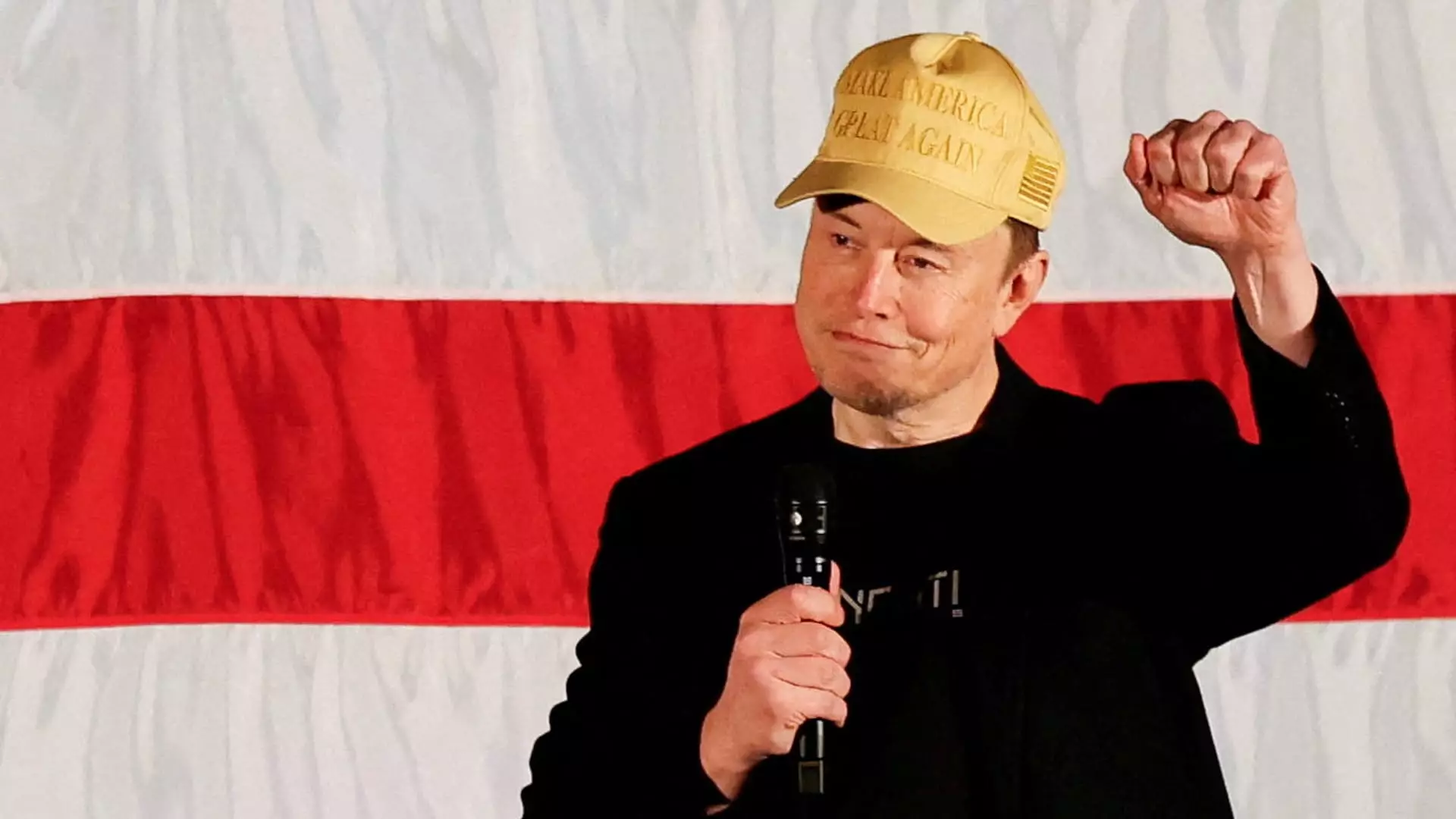In a recent and controversial move, billionaire entrepreneur Elon Musk announced a plan to donate $1 million daily to registered voters who support his political action committee by signing a petition. This initiative was unveiled during a speaking engagement in Harrisburg, Pennsylvania, where Musk portrayed the state as a critical battleground for the upcoming elections. His approach raises significant concerns about the ethical implications of wealth influencing voter behavior and the integrity of democratic processes.
Musk’s announcement created a stir, prompting many to question the legality and morality of tying financial incentives to voter engagement. The idea that financial rewards could sway voter turnout is troubling, and experts in election law expressed skepticism about the initiative. Rick Hasen, a UCLA law professor, pointed out that such actions may violate federal laws designed to prevent the commodification of votes. By offering monetary rewards, Musk risks creating an environment where elections become less about policies and more about financial transactions.
This tactic, viewed by some as a gimmick, poses a significant challenge to the very foundations of democratic engagement. While the intention may be to mobilize a demographic of voters, the broader implications suggest a disturbing trend where affluence may dictate political outcomes. This is particularly salient in swing states like Pennsylvania, which Musk has identified as central to the election’s trajectory.
Musk’s immense wealth—and the influence that accompanies it—opens up critical discussions regarding the intersection of money and politics. Critics argue that the wealthiest individuals may hold disproportionate power to shape electoral outcomes, often at the expense of broader public interests. The initiative’s design suggests that those with fewer resources may find themselves silenced in a political discourse dominated by significant financial incentives.
Moreover, Musk’s rhetoric during the event, which included ringing endorsements of deregulation and dismissive comments about the government’s role, aligns with a troubling trend among wealthy individuals seeking to diminish regulatory oversight. His assertion that “we should not trust the government” reflects an ideology rooted in hyper-individualism and skepticism of collective governance—and it begs the question of how this ethos affects policy and society as a whole.
While the intention to boost voter registration may appear noble on the surface, the underlying mechanics challenge democratic principles. Offering money in exchange for political action may alienate those who believe in the civic duty of voting without extrinsic motivation. This method could lead to a transactional view of democracy, undermining the intrinsic value of participation in the electoral process.
Additionally, as Musk leverages his celebrity status to attract attention to his petition, one must consider the reliability of the messages conveyed. His previous remarks, which often veer into conspiracy theories and disparagement of political figures, cast a shadow on the sincerity of his efforts. Furthermore, the fleeting nature of his support—tied to an innovative but contentious initiative—raises doubts about his commitment to genuine political engagement as opposed to mere publicity.
The potential ripple effects of such initiatives may shape the landscape of American elections for years to come. If wealthy individuals begin routinely offering financial incentives for voter participation, this could lead to a reevaluation of electoral fairness and equitable representation. Would elections become a playground for the affluent, where their financial prowess is a critical factor in determining outcomes? Such a shift could further disenfranchise voters already marginalized within the political system.
Moreover, while Musk’s intentions may be to rally support for certain causes or candidates, his actions may inadvertently invite increased scrutiny and regulatory responses. Political analysts are now closely monitoring whether lawmakers will step in to address perceived breaches of electoral integrity, potentially leading to new legislation aimed at curbing the influence of wealth on electoral processes.
Musk’s recent announcement embodies a potent mix of wealth, celebrity, and political engagement that underscores the complexities of modern democracy. While he aims to stimulate voter engagement, the ethical implications of offering financial incentives cannot be ignored. As America navigates an increasingly polarized political landscape, the urgency of preserving the integrity and essence of democratic processes remains paramount. The intersection of wealth and voter influence will inevitably be a defining issue in the coming years, prompting necessary dialogue around the principles that underpin the democratic ideals many hold dear.

